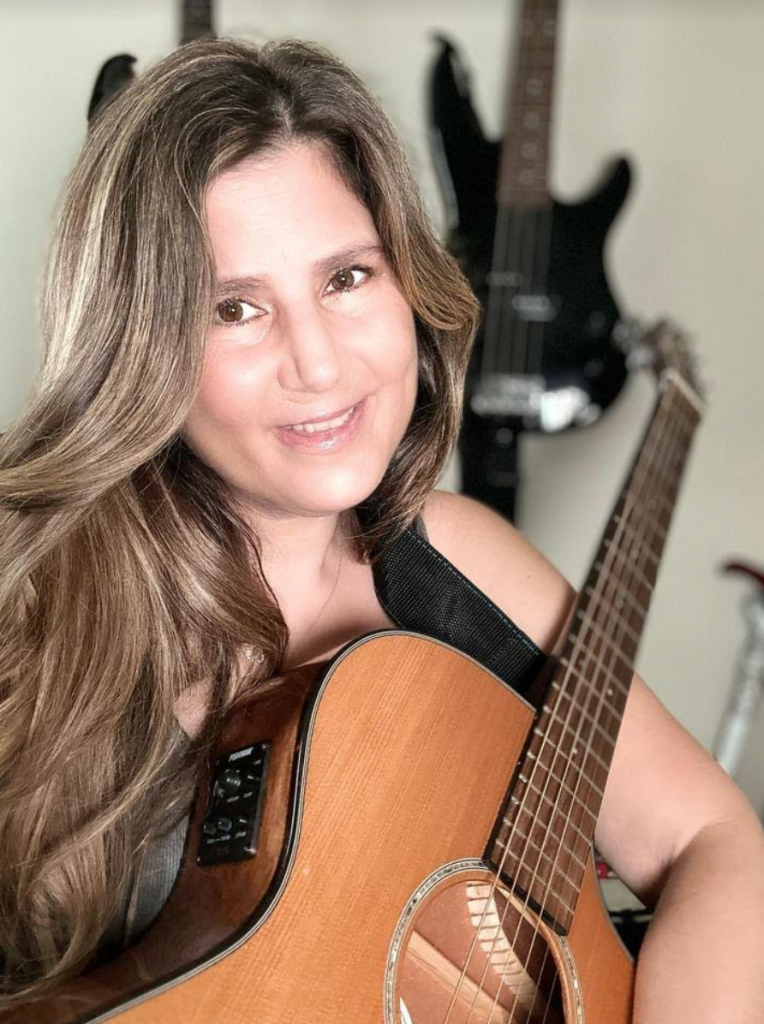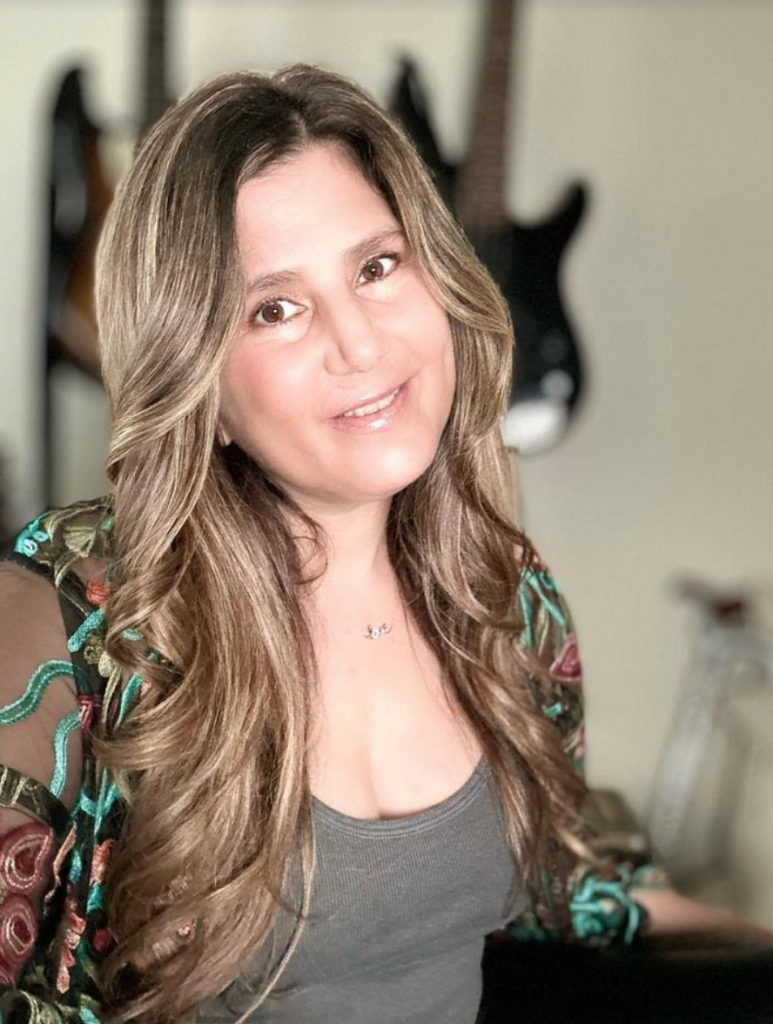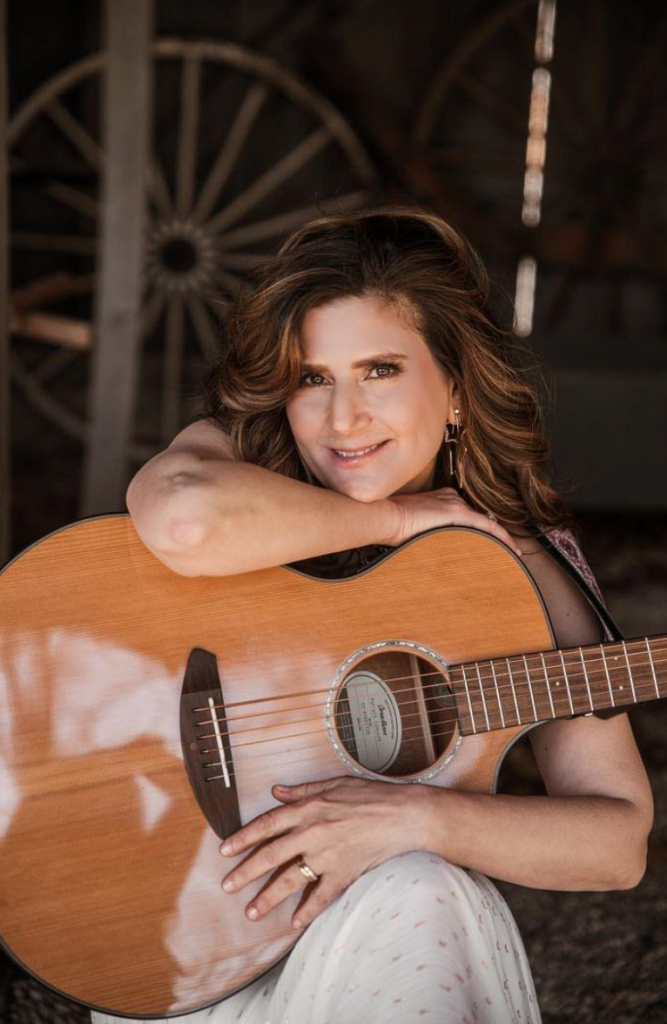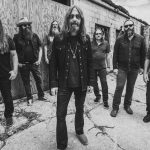For this feature piece, we have the pleasure of talking to Robbie Harte, whose new single “Heart in 2 Places” we recently reviewed.
Lorraine said of the single: A country rock track with some great guitar grooves, a solid drum and bass beat, and vocals that make you smile, it had me dancing around my living room with the cat in my arms. I love it when music uplifts you and makes you feel better for listening, and here we go with this one. I’m sure this one will be loved by all fans of country rock, and it should get plenty of play on country radio too.
As background, Robbie Harte is an award-winning international country music recording artist, originally from Montreal, Canada. Known for her warm, rich vocals and emotional delivery, Robbie is described by fans as compelling, inspirational, and powerful. With that in mind, we were very happy to link up for a chat and explore the backstory of this great singer-songwriter.

We started by wondering if music was always the dream—was Robbie always dreaming of being a singer? Was she the girl at school singing in the corridor? Was she involved with music theatre?
Robbie: It is a yes to all the above. I was singing before I could speak, and it was always a dream. Singing was my go-to confidante, my language of communication. If I had a story to tell, it would be done through song and music. I was in music theatre and loved drama. I grew up wanting to be a professional singer, but like many adults, I needed the main job to get by. I ended up moving to New York from my home in Canada to get married to my husband. The dream to pursue music remained, and I hoped that in New York there might be more opportunities. But unfortunately, after I moved to New York, I was badly injured with a life-changing injury. As a result of this, I was in excruciating pain, and everything became so limited. I had debilitating pain, and I could no longer sing. For the first time in my life, my voice failed me—the first time that I couldn’t just scream at the top of my lungs and belt my way through a song. This went on for years, and as my injury went on, I ended up losing a sense of who I was as a human being. Music was my world, and my hopes and dreams had been taken away from me. My means of communicating with the outside world stopped; I was not recognizing the person in the mirror anymore. So, this went on for about seven years, but at the time I was injured, I was pregnant. I had a daughter growing up, and I wanted to show her that in life, no matter what obstacles are put there, you must fight to overcome them. I wanted to show my daughter that I could act as well as speak, and that is what propelled me toward making my music career happen. I knew my daughter was watching me and that her mum had to fearlessly pursue her dream!
Of course, part of singer-songwriter songwriting is the wonderful process of telling our stories. That is partly why we have the poetry page tucked away in our magazine (under ‘extras’). It is quite therapeutic to tell those stories.
Robbie: I agree 100%. Like you say with your poetry page, writing a song or poem can give you that sense of closure; it can be a cathartic way of healing. In poetry, the sentiment and words are there; you just miss the beat and melody. The person who reads it can take it any way they want because it resonates that way with them; it is part of their journey and story and how they connect to it. So, songs and poetry are closely related. Words are in there with the music!

And, of course, those older readers here will remember the days of going and buying an album, opening the sleeve, and getting out the lyric sheet for a read. There was also a love for those album covers. The last cover for “Heart in 2 Places” had Robbie standing with her back to us, watching the road stretch out ahead. Was that her idea?
Robbie: There is a lot of effort going into the covers. I do everything myself, from the promotions through to the cover designs. “I of the Storm” is an exception, as there was a photographer who did that cover and he did the background to the picture, but I did the writing and overlay. But everything I put into the music, from the song to the picture, must have a message. It is very important that nothing is there by happenstance, nothing is random; it must mean something. For the cover of the latest single, I am standing and looking down a road. The premise of the song is that I’m standing between two places. I’m from Canada, my family is from Canada, and I love the place. But I am here now in America with my new life, my family, and my daughter. I am there on the road; to me, that is me now. There is no end to the road—almost an intersection—and both of those roads are a part of me. Both roads are accepting of me, and people have so much to offer. It is not a fork in the road; there is no decision or trepidation; it looks down the road, and there are loving forces on both sides that I am part of.
Although music genres can be fluid, helping the music listener select their sound. We notice Robbie has the hats, but to what extent does Robbie look to cultivate a country image?
Robbie: I don’t fall into one box per-se. I am country, but I am also a singer-songwriter and I want my song to tell the story. I go by what the song says, what is the message? What is the mood? The same thing goes for my instrumentation; I don’t deliberately go out to do a country song; I look to tell a story. Whatever elements fall into the story that tell the story the best, that is how I create the song. “I of the Storm,” the album, is a collection of stories that are empowering. If you look at the album cover, there is nothing particularly country about it; it is cheekier and more playful. There is the leather and there is the lace with that cover, and the underlying message of “I of the Storm” is that I am a walking contradiction; I am a hurricane in lace. There is sweetness and softness, and there is the devilish grin in the leather jacket. There is a contradiction, that juxtaposition and that is what I wanted to show. I am fragile, but I am unbreakable. I am all those things, and I don’t want to commit to just one of those things. I don’t have to be just country; some of the hats I have personal connections to. For example, I have a black hat that my parents gave to me for my birthday, and whenever I am far away for my music, I bring my hat and It’s like having my family there with me I love those elements, (hats and boots) but I don’t feel it is necessary to massively show those country images. Of course, I do have about 20 hats! I don’t think those hats get enough screen time; I get attached to the hats as I am a sentimental person, and everything for me is about connection. If something is given to me, if there is an attachment, then I become fond of it, and I will bring it with me. It’s who I am. That is in my music as well.
The song “I of the Storm” touched on a Bon Jovi feel, a certain guitar sound—a bit of smooth Southern Rock.
Robbie: That story was incredible how it came together. I started working with producer Matt Anthony on that EP and I told him that this was the song, the melody, and the feel. I wanted it to sound like an outlaw showdown, I wanted to hear the tumbleweed, I wanted to hear the wind blowing; and I wanted to walk into this scene with my cane. I wanted the Wild West! He really brought it to life and did an incredible job, He really understood where I was going and the different elements. He contributed to the full story, and when you hear the song, I hope that comes through.

We always feel that when we listen to music, we want it to uplift us, and Lorraine did write that hearing “Heart in Two Places” had her dancing around the room with her cat.
Robbie: I agree that music always can lift us out of gloom. It can take us out of our daily groove; a good song makes us forget where we are and the difficulties we face. That is the magic of music, and I do hope my song does that for people.
The music business is, of course, something of a minefield today. Having been in the business for a few years now, how does Robbie view us all in the music press? Are we a necessary evil, or does she enjoy the media side of things?
Robbie: It is just part of the scene; you can’t ignore it. You submit the reviews, and you don’t always get the reviews you are looking for, but music is a subjective business. I don’t see music as some sort of race to be first, it is an interpretation of what we create. That’s never going to change, and I don’t take it to heart if someone doesn’t love my work. That’s perfectly okay; you must develop thick skin in this business. I did a radio show where people submitted music to me, and I didn’t like everything I heard. I may not tell them that, but I understand there is a subjective element to all music. But I’m always very happy to receive positive press. It’s always an incredible feeling when people recommend my music. I feel there is so much noise in music right now, it is difficult to hear over the clamour. Every day, so much is placed on social media and on Spotify that, as an independent artist, it can be hard to be heard.
And who owns a song? The writer or the listener? We have examples of when we talk to an artist about a song and say how we feel about it, and the artist goes, ‘interesting, but that is not what I had in mind at all!’ But does it matter? Perhaps songs connect in ways we never intended?
Robbie: I think that is an interesting point, and I can relate to that. I released a song called “Sticks and Stones” last year and it was about a toxic relationship that I had been in. It was about someone very negative and toxic, and everybody thought it was a breakup song, but it wasn’t at all. But the fact that people found themselves in my story made me happy for them that they could identify with the song, even though that was never my message. But, if it empowered them and they liked it, that is fine. As an artist and storyteller, the best I can hope for is that people find themselves in my story, and however that is done, if they can relate, that makes me very happy. For me, it is all about the connection.
And a finishing question, what artist would you most have liked to catch in concert but were never able to?
Robbie: That’s an easy answer! Roy Orbison. He is my all-time favourite, and I would see him anytime, anywhere! Just to be in his presence would be awesome; I would get those goosebumps. He is my absolute favourite voice.
As a finishing point, to keep us improving the magazine, we really do need your support, and if you can go to the’support us’ button and buy us a coffee, it helps us feel appreciated and keep improving the magazine. We also have our merchandise shop, Lorraine, looking great in the gear! Read on, check out our many great features and reviews, and do bookmark us on your pages!
Link to artist website here
Stream music by Robbie Harte here
By Mark C Chambers
and
Lorraine Foley




